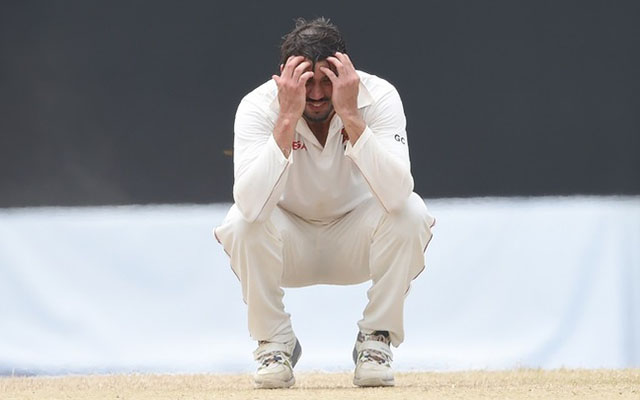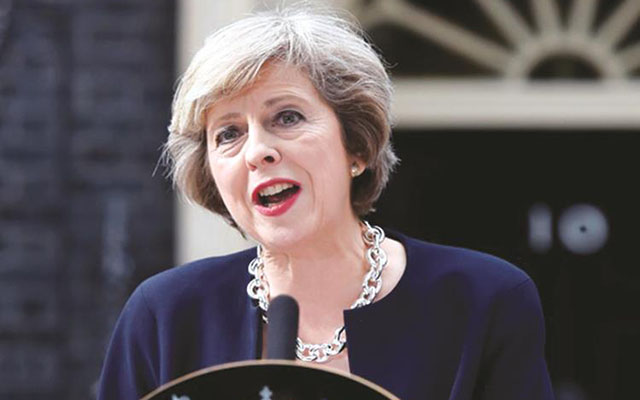Feel it, it’s very painful


THIS PICTURE SAYS IT ALL . . . Zimbabwe captain Graeme Cremer buries his head in his hands after a frustrating final day of a thrilling Test battle against Sri Lanka in which an umpire played a huge part in the destiny of the match – AFP
Robson Sharuko Senior Sports Editor
THE shame, out of all this, is that – long after the controversy related to Indian umpire’s shocking game-defining decision in Colombo yesterday has disappeared from the headlines – the world will still remember that Zimbabwe have never beaten Sri Lanka in a Test match.
Of course, we haven’t, because statistics don’t lie. But, after the drama yesterday that bordered, in some way to the worst display of cheating by an umpire since that debacle last year in the Ireland/Afghanistan game, it’s also important that, whenever this contest is debated, there should always be a note at the bottom to explain why this was one a riveting battle whose purity was tainted by one man.
A man, somehow, given all the powers of technology to ensure that he gets it right, from as many angles as he wanted, but still chose to get it wrong in the defining moment of this battle in the Colombo heat.
And that’s a shame because, in a game that prides itself for its purity and built its reputation as the ultimate sport for the gentlemen, where an opposing player is expected to tell the umpire that the ball didn’t carry or he touched the ropes while scrambling to save a run and avoid a boundary.
Niroshan Dickwella, who ended up as the match winner for Sri Lanka, should have long perished before he put together his game-winning innings.
He was on 37, and with the outcome in favour of the Chevrons, when he was stumped by wicket-keeper Regis Chakabva who also made a number of fumbles that could have changed it all.
But heads drop when athletes start believing the system is against them. Sri Lanka, with 151 to get at that stage, should have been six down and the game all but over for the hosts.
Enter Mr Controversy, Chettithody Shamsuddin, the Indian umpire who appears desperate to ensure that he creates as much drama, from his officiating, as an individual, as what has probably been created by all the other people, combined, who have been vested with such powers in this game.
He was the television umpire yesterday and he should have seen, very, very clearly, that Diskwella was gone.
And one didn’t need to be blinded by the partisanship of being a Zimbabwean, rooting for the cause of the Chevrons, to see that.
‘‘They should have been six down with 151 to get, had third umpire C Shamshuddin ruled Dickwella out when he was stumped on 37,’’ the person doing the text commentary for the authoritative ESPNCricinfo wrote.
‘‘No part of the popping crease was visible behind Dickwella’s boot at the moment the bails came off. However, it was unlikely that any part of the boot was behind the crease either, which should result in an ‘out decision.’’
Let’s run the text commentary again. ‘‘Sikandar Raza to Dickwella, no run, turn and bounce! Perfectly-pitched off-break, creates an opportunity. The square leg umpire has referred a stumping chance.
‘‘Dickwella is in trouble. Side-on replays show that the back foot is bang on the line. Not even an itty bitty part of the foot behind the crease. Shamshuddin, the TV umpire, examines various angles, but there is nothing behind the line.
‘’Surprising/shocking (delete by preference) decision from the TV umpire. Not out is the verdict. Zimbabwe’s players are stunned, as is their coach Heath Streak in the change room.’’
We are not the ones who said that. Or, let’s look for another version. This is what Akhil Nair, writing for the thewringsideview.com website, penned.
‘‘Zimbabwe players may feel hard-done, Sri Lankan players, especially Niroshan Dickwella, will feel extremely lucky – but controversy surrounds a massive moment in the one-off Test between the two sides at the Premadasa Stadium in Colombo.
‘‘Dickwella was beaten by an excellent delivery by Sikandar Raza, which turned and bounced and beat the outside edge. Wicketkeeper Regis Chakabva was quick to dislodge the bails and the decision went to the third umpire C Shamshuddin.
‘‘Side-on replays showed Dickwella’s back foot was on the line, with no part behind the crease. Zimbabwe players celebrated on seeing the replay on the big screen at the ground, as the dismissal was a step closer to victory.
‘‘But to their utter disbelief, the decision passed on was ‘not-out’. The players stood stunned, so did their coach Heath Streak. Do you see any reason why this could have been given not out?’’
And what did the excellent Graeme Cremer, our skipper, think about all this?
“From what I saw, I honestly didn’t see any doubt as to why he shouldn’t be out,” Cremer said.
“It’s just one of those things. If you’ve got technology, it clearly shows it. It happens to us quite a lot as well, we feel. It’s tough when those things go against you, especially when you are trying to win a Test match on a last day.”
And, as fate would have it, Dickwella rescued Sri Lanka from 203-5 to go and score a match-defening 81.
Mistakes happen, of course they do, but when they become consistent like in the case of Shamshuddin, then questions inevitably begin to be asked and, crucially, why he keeps getting those appointments.
It’s not the first time he has found himself being at the centre of controversy.
He was forced to withdraw from the deciding Twenty20 International against India and England after making a number of questionable calls against the tourists in the second T20I in Nagpur, adjudging that Joe Root had been trapped lbw in the final over when the batsman had got an inside edge.
He had also given Virat Kohli the benefit of doubt, in that match, when he should have been dismissed for seven, after being trapped by Chris Jordan.
“It was frustrating and there were obviously decisions throughout the game that went against us, which could be crucial,” Root said back then.
‘‘If that [umpiring error] was at a major tournament and we get knocked out of the semi-final or lose a final from a decision that does go against us we feel bitterly disappointed and I don’t think it would fair on him as an umpire standing in that game to have to deal with the aftermath as well.’’
The English media, predictably, were vicious in their attack with The Sun saying, “England were victims of three shocking umpiring decisions from Indian official Chettithody Shamshuddin,’’ and the Daily Mirror said ‘’Chettithody Shamshuddin had less than a day to acclimatise after arriving in Nagpur from Australia — it would have felt like 3.15am to him when he missed crucial inside edge.’’
In July last year, Shamshuddin was also part of that controversial game between Afghanistan and Ireland which ended in a farce amid reports that ‘‘cheating claims have marred Afghanistan’s ODI victory over Ireland after Ed Joyce was run out in highly contentious circumstances.’’
Cremer says he has seen it happening so often, when it comes to Zimbabwe, and he is right.
After all, the world has already forgotten that our Under-19 team were eliminated under a cloud of ‘’Mankad’’ controversy in February last year when West Indies bowler Keemo Paul removed Richard Ngarava, in a do-or-die match we were favoured to win.
The Windies boys went on to be crowned World Champions, for good measure.
The Chevrons return home at 5pm this evening and Zimbabwe Cricket authorities have called for fans to give them a hero’s welcome.
They deserve it, no doubt about it, and it’s something Shamshuddin cannot take away from them.











Comments